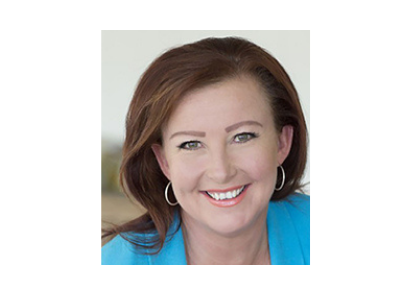Message mastery: stay away from a communications crisis
By Kim Skubris, Media and Communications Consultant, Peak Services

Kim Skubris
Journalists are often referred to as a “Jack of all trades, master of none".
This has certainly been the case for me, as I recently reflected on more than 30 years as a broadcast reporter with the Seven Network. The spontaneous nature of breaking news and the audience’s insatiable appetite for new information and entertainment drives the beast we know as massmedia.
Arguably now more than ever, the pressure is on reporters to fill a seemingly endless – and more diversified – demand for on-air and online content. One minute you’re reporting at the scene of a cyclone, the next you’re learning about the COVID-19 vaccine!
Working at the coalface in communities, local councils can capitalise on the ever-growing demands being placed on journalists to deliver stories, by driving positive messages and news content and taking control when a reporter throws a curve ball question.
What do I mean by this?
Quite simply, get in front of the message.
Powerful communicators are more proactive than they are reactive.
In the case of the local government sector, driving the message is not just critical when dealing with media. It is vital while communicating with the constituency and a key component of team building within the internal council framework.
One of the biggest challenges for news reporters is to simplify an issue, event, product, or breakthrough without distorting the message.
Simplifying without distorting; in many cases it’s easier said than done.
A question I’m often asked by mayors, councillors and CEOs as I run media training and presentation workshops throughout Queensland is “Skubes, how do I know the media or community won’t twist my words? How can I guarantee my message will be received the way we intended?”
The simple answer is you cannot. There will always be an unscrupulous element in communities and in the field of journalism – as there unfortunately is in so many industries. But you can mitigate the risk that messages will be taken out of context, misinterpreted or subjected to a media “beat-up” by carefully crafting succinct, catchy phrases – that are easy to recall when you’re talking to a reporter – within a strong communications framework.
Those of you who have worked with me know my passion for storytelling and sharing its power as a communications tool. In times of crisis, this approach can successfully keep media and communities focussed on the positive, rather than seeking out the negative.
As former Queensland Premier, Sir Joh Bjelke-Petersen famously liked to say when fronting a media scrum: “I’m feeding the chooks!”.
Feed the media, feed the community what your local council wants to focus on, and more likely it will successfully set the agenda and keep the “spin” in your organisation’s favour. Don’t wait until you are in a reactionary position and are fronting questions or, worse still, being forced to answer enquiries which are far removed from the issue you’re working hard to highlight.
My media training reinforces the danger of saying “no comment” to a journalist or voter. It’s seen as an admission of guilt or that you are hiding something. Having three key messages ready for any potentially explosive situation, or issue removed from your organisation’s interests, will assist you in keeping interviews and conversations on track and prevent a journalist putting words in your mouth.
It’s human nature to repeat an emotive word in a phrase shared with you during a conversation. Be mindful of falling into the trap when facing media that what you say can be edited. Repeating that emotive word could possibly be the only part of the interview which is aired that night on the evening news or to appear in the next morning’s paper. For example, a reporter asks you “this could be devastating for our town?” and you reply “yes... this could be devastating...” when really you’re trying to calm people down and would have preferred to say “we’ll get through this challenge by working together”.
Having key messages or holding statements prepared for various scenarios will assist you in preventing journalists from putting words in your mouth, leading you away from the topic at hand, and/or getting you tangled up in an issue you don’t want to be drawn into.
It is understandable that many people fear and loathe the media but with a better knowledge of how this beast works, and how to better reach an audience of reporters or voters, you will be empowered as a stronger communicator.
Putting yourself in the driver’s seat of message mastery and considering communications at the start of issue strategising or event management, rather than as an afterthought, will increase the chances of a positive outcome for community acceptance or media coverage. Ultimately, this approach will empower the spokesperson.
Comedian Jerry Seinfeld said “I’d rather be in the coffin, than delivering the eulogy". I know many of you who’ll be reading this feel the same. Seventy-eight per cent of the world’s populations fears public speaking, let alone facing media cameras and scrutiny.
Spending time preparing your messages, practicing out loud and understanding your audience will assist in steering you in the right direction.
Wishing you fewer curve balls and every success in the next chapter of your council’s story in 2021.
For more information on training contact Patricia Paolini, Business Development Manager – Training on ppaolini@wearepeak.com.au or call 0407 966 716.